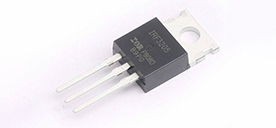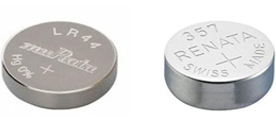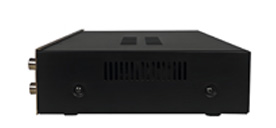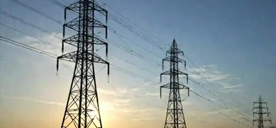Problems and solutions of MOS tubes in high-frequency radio frequency circuits
2023/12/23 10:42:20
Views:
The reasons for MOS tube burnout can be summarized as follows:
1. Overvoltage: MOS tubes have limited tolerance to overvoltage. Even exceeding the rated voltage for only a few nanoseconds may cause equipment damage. Pay special attention to suppressing voltage spikes or ringing.
2. Overcurrent: High current for a long time will cause the MOS tube to overheat, causing the bonding wire or substrate to melt.
3. Gate breakdown: High gate voltage may cause breakdown of the thin oxide in front of the gate and die, and the gate voltage should be limited to ensure safety.
4. Power overload: Exceeding the maximum rated power of the MOS tube and insufficient heat dissipation may cause damage.
5. Transient current overload: Instantaneous large current overload may cause damage to MOS transistor devices, so attention should be paid to the current limit.
6. Breakdown (cross-conduction): Turning on two MOS tubes at the same time may cause a short circuit in the power supply, which should be avoided by setting a dead time.
7. No freewheeling current path: When the inductive load switches current, a freewheeling path needs to be provided, usually through a freewheeling diode.
8. Slow reverse recovery of the MOS body diode: When the freewheeling current passes through the MOS body diode, its slow reverse recovery may cause problems, which can be alleviated by adding a diode.
9. High standing wave ratio: In radio frequency systems, high standing wave ratio may cause reflected power and breakdown problems, so attention should be paid to matching impedance.
10. Miller effect: The "Miller capacitance" of the MOS tube may cause breakdown problems, and a low-impedance gate driver should be used to reduce the impact.
11. Static electricity damage: When installing MOS tubes, anti-static treatment should be taken to prevent damage to the gate oxide layer.
12. Spurious oscillation: The high-speed switching of MOS tubes may cause spurious oscillations, which should be prevented by reducing stray inductance and capacitance.
13. Radiated and conducted interference to the controller: The controller requires good shielding and decoupling to prevent interference from affecting its operation.
To ensure the stability and reliability of MOS tubes, these potential causes of failure need to be carefully considered and resolved.
1. Overvoltage: MOS tubes have limited tolerance to overvoltage. Even exceeding the rated voltage for only a few nanoseconds may cause equipment damage. Pay special attention to suppressing voltage spikes or ringing.
2. Overcurrent: High current for a long time will cause the MOS tube to overheat, causing the bonding wire or substrate to melt.
3. Gate breakdown: High gate voltage may cause breakdown of the thin oxide in front of the gate and die, and the gate voltage should be limited to ensure safety.
4. Power overload: Exceeding the maximum rated power of the MOS tube and insufficient heat dissipation may cause damage.
5. Transient current overload: Instantaneous large current overload may cause damage to MOS transistor devices, so attention should be paid to the current limit.
6. Breakdown (cross-conduction): Turning on two MOS tubes at the same time may cause a short circuit in the power supply, which should be avoided by setting a dead time.
7. No freewheeling current path: When the inductive load switches current, a freewheeling path needs to be provided, usually through a freewheeling diode.
8. Slow reverse recovery of the MOS body diode: When the freewheeling current passes through the MOS body diode, its slow reverse recovery may cause problems, which can be alleviated by adding a diode.
9. High standing wave ratio: In radio frequency systems, high standing wave ratio may cause reflected power and breakdown problems, so attention should be paid to matching impedance.
10. Miller effect: The "Miller capacitance" of the MOS tube may cause breakdown problems, and a low-impedance gate driver should be used to reduce the impact.
11. Static electricity damage: When installing MOS tubes, anti-static treatment should be taken to prevent damage to the gate oxide layer.
12. Spurious oscillation: The high-speed switching of MOS tubes may cause spurious oscillations, which should be prevented by reducing stray inductance and capacitance.
13. Radiated and conducted interference to the controller: The controller requires good shielding and decoupling to prevent interference from affecting its operation.
To ensure the stability and reliability of MOS tubes, these potential causes of failure need to be carefully considered and resolved.
Related Information
-
-
Phone
+86 135 3401 3447 -
Whatsapp





